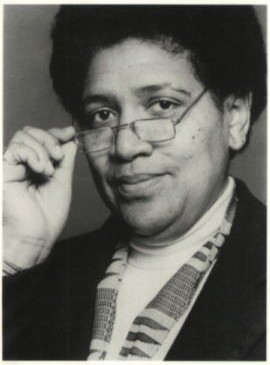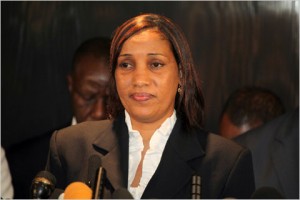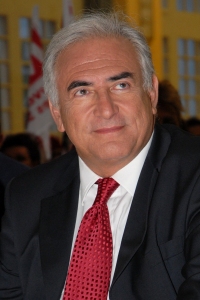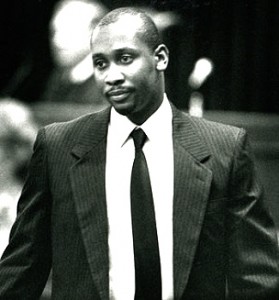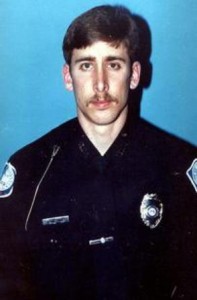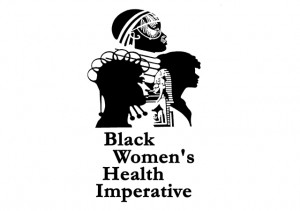
Who Will Revere US?
(Black LGTBQ People,
Straight Women, and Girls)
(Part 2)
This is Part 2 of a four part article. Immediately following is the introduction to the series, originally published April 23, 2012, for your convenience. Part 1 can be read in its entirety here.
Introduction
The title of this four part article is a metaphorical nod to the legendary jazz singer, songwriter, actor, and activist Abbey Lincoln (also known as Aminata Moseka) whose essay, “Who Will Revere The Black Woman?” is featured in the ground-breaking anthology The Black Woman. Edited by Black feminist author, screenwriter, and visionary activist Toni Cade Bambara, this all-Black woman anthology focused on the issues most pertinent to Black women and our communities. Originally published in 1970 and reissued in 2005 with a forward by Dr. Eleanor W. Traylor, The Black Woman was the literary wo/manifestation of the impact of the intersection of the Civil Rights/Black Power movements and the second wave of the Women’s Rights movement on Black women’s lives. In short, Ms. Lincoln’s ageless essay is a demand for justice and protection for Black women. In her concluding paragraph she writes,
[…]Who will revere the Black woman? Who will keep our neighborhoods safe for Black innocent womanhood? Black womanhood is outraged and humiliated. Black womanhood cries for dignity and restitution and salvation. Black womanhood wants and needs protections, and keeping and holding. Who will assuage her indignation? Who will keep her precious and pure? Who will glorify and proclaim her beautiful image? To whom will she cry rape?
In her 1983 prophetic and timeless essay, “There Is No Hierarchy of Oppression,” self-defined Black feminist lesbian mother warrior poet Audre Lorde writes,
I cannot afford the luxury of fighting one form of oppression only. I cannot believe that freedom from intolerance is the right of only one particular group. And I cannot afford to choose between the front upon which I must battle these forces of discrimination, wherever they appear to destroy me. And when they appear to destroy me, it will not be long before they appear to destroy you.[1]
I am struggling to find the right time to discuss inter and intra-racial gender-based violence in the midst of the justified outrage about the rampant and virulent racialized violence perpetrated against straight Black boys and men. Even with this being Sexual Assault Awareness Month, now doesn’t feel like the best time to write about the gender-based and state-sanctioned violence perpetuated against Black straight women, girls, and LGBTQ (Lesbian, Gay, Bisexual, Transgender, Queer) people both inside of and outside of our racial/cultural communities. I fear that sharing what’s on my heart and mind, might be construed as my taking away from the “real” issue at hand in most Black communities, which seems to be solely white supremacist and/or state-sanctioned racist violence against straight Black men and boys.
Audre Lorde’s writings remind me, however, that discussions on oppression within Black communities should never be taken up within an either/or frame. The diverse herstories/histories and contemporary realities of Black straight women, girls, and LGBTQ people have consistently revealed that the issues that directly impact us often take a back seat, if they even make it into the metaphorical car on the freedom and liberation highway.
There is a collective understanding among many in multi-racial, radical progressive movements, that the white supremacist, patriarchal, heterosexist, imperial, and capitalist power structure is the root of all oppressions in the United States. While I believe that to be true, even in the company of other oppressed people, Black straight women and LGBTQ people are still under attack. Too often we are caught at the intersections of race, gender, and if we identify as LGBTQ, sexuality. In spite of our shared his/herstories of oppression, struggle, and perseverance against the odds, not enough Black people view sexism, patriarchy, misogyny, heterosexism and transphobia with the same kind of activist passion that we view racism, white supremacy, and state-sanctioned violence perpetuated against straight Black men and boys.
The reality is this: when Black straight men and boys are beaten, brutalized, and/or murdered as a result of state-sanctioned and/or white supremacist violence, it becomes (as well it should be) a national issue in the Black community and in a few, definitely not all, instances, the outrage moves beyond the Black community. Yet, when Black straight women, girls, and LGBTQ people are raped, sexually assaulted, beaten, brutalized, and/or murdered as a result of misogynist, patriarchal, state-sanctioned, and/or white supremacist violence, it is too often the victim’s individual issue.
There are so many egregious, known and unknown, cases of racial and gender-based violence perpetuated against all Black people, regardless of their gender, gender identity, and sexuality, that it is literally impossible to write about all of them. I want to highlight a selected few of the far too many, however, to ask Black/African-American/African descended people to consider our responses when any of us have been railroaded into the prison industrial complex, sexually or otherwise assaulted, or murdered. I want us, Black/African-American/African descended people, to consider our responses to issues that affect many as opposed to those issues affecting some of us based on our gender, gender identity, and/or sexuality.
***
Part 2
Nafissatou Diallo
There was a time when an African descended woman would accuse a white man of sexually assaulting or raping her and the African-American community would not only be alarmed, but they would mobilize into direct action. That time is long gone. Ms. Nafissatou Diallo, an African immigrant from Guinea who worked as a maid at the Sofitel Hotel in New York accused Dominique Strauss-Kahn, who, at the time, was managing director of the International Monetary Fund, of sexual assault and attempted rape on May 14, 2011. (I write Ms. Diallo’s name because she came forward and publicly told her story.) From the moment that the charges were filed, the backlash and metaphorical rape that Ms. Diallo experienced through the media, most notably the New York Post, and the court of public opinion were astounding. Fortunately, award-winning journalist Akiba Solomon, kept her Black feminist lens consistently on the Strauss-Kahn pulse through her Colorlines Gender Matters blog. In the opening paragraph of her first post covering the case, Solomon wrote:
When I heard that Dominique Strauss-Kahn, managing director of the International Monetary Fund, was arrested for sexually assaulting a housekeeper in his $3,000 hotel room in New York City, I immediately feared for his accuser’s life…
And, Ms. Solomon was not alone. There were many mainstream and radical grassroots feminists of diverse races, ethnicities, and sexual orientations in both the United States and internationally, who were not only afraid for Ms. Diallo’s life, but who were outraged at the despicable way in which she was treated in the media. As a result, many were called into immediate multi-layered action. Black feminist advocate Andrea Plaid, formed the Coalition to Support Sexual-Violence Victims and Survivors in response to the New York Post’s smearing campaign. The Coalition created a change.org petition (disclosure: I was an original signatory) demanding that the New York Post retract calling Ms. Diallo a prostitute, without any evidence of this being the case. ”I just couldn’t stand by and couldn’t stand being angry without doing something about it,” said Ms. Plaid in Change.org editor’s Alex DiBianco’s article, “NY Post Smears DSK Rape Victim as ‘Hooker,’ Can’t Back Up Their Claim.”
Ms. Plaid also shared in detail reasons for the petition against the New York Post in Nadra Kareem Nittle’s “Media Bungles Race and Sex in Coverage of Dominique Strauss-Kahn Rape Scandal“:
As a collective, we find it absolutely reprehensible that the New York Post said she was a hooker… Even if she was a sex worker, that doesn’t discount that she (could have been) raped. Far too often, the word hooker is like a code word for black woman—ho, whore, hooker. It was a way to cheapen black women historically…. I know we’re not talking about the most stellar journalistic organization, but we live in the age of information. Journalists are supposed to be information gatherers.
With less than 2500 signatures, the Coalition was not successful in getting the New York Post to retract their “hooker,” comment. In fact, the New York Post continued to move forward, with full force, in their campaign to completely denigrate and malign Ms. Diallo. In spite of this, Ms. Diallo continued to receive support from a wide range of people and organizations. The Rev. A. R. Bernard, senior pastor of the Christian Cultural Center in New York, said in a news conference standing with Ms. Diallo,
It is unfortunate that we live in a world where too often justice is held captive by falsehood, and that falsehood when proclaimed is too readily accepted by our society…Such is the case for Nafi Diallo, who had no recourse but to seek an alternate platform where she could tell the truth.
And there were others who advocated on behalf of Ms. Diallo, like this Black woman protestor captured in this YouTube video clip. Interestingly, while the content of the protester’s remarks are poignant, the video had only garnered 351 views at the time of this writing.
Latoya Peterson, Black feminist journalist, owner and editor of Racialicious, poignantly contextualized Ms. Diallo’s charges against Strauss-Kahn in her article, ”Nafissatou Diallo, Dominique Strauss Kahn, Race, Immigration, and Power,”
[…]When crime, power, and scandal combine, there is always the idea that the more powerful person is being set up by the person with the least amount of power. And, commonly, the victim in sexual assault and rape trials find themselves subjected to invasive probes about their own sexual background, mental health history, and any other improprieties…
Even with all of the support that Ms. Diallo received, it is important to note that mainstream, national African-American Civil Rights organizations and ‘leaders’ were largely silent around her case.
The official and unofficial global coverage amongst many members of the media, and all of Strauss-Kahn supporters to sanitize and both covertly and overtly present him as innocent was really despicable, most especially in light of the parallel campaigns to smear Ms. Diallo and drag her through the mud. Sexual assault and rape are probably the only crimes when the victim’s behavior before the crime determines if there was a crime. According to RAINN (Rape, Abuse, and Incest National Network) statistics, most rape victims do not report their rapes. The ones that have the courage to report their rapes are often smeared and maligned. There is, however, another layer that comes into play when we factor in the race, gender, and class of both Ms. Diallo and Strauss-Kahn.
In “She Told Us So: Nafissatou Diallo and Dominique Strauss-Kahn’s New Case,” writer Valerie Jean-Charles, interrogated the role racism and sexism may have played in the mainstream media and court of public opinion’s rush to absolve Strauss-Kahn of any foul play, in light of his most recent pimping charges.
[…]Although it was Strauss-Kahn who was charged with a crime, it was Ms. Diallo who received a trial — one via the media. Prosecutors, law officials and the media spouted that given Ms. Diallo’s alleged past lies and misgivings, it was impossible to trust her story. No one for a moment seemed to doubt Strauss-Kahn’s account that a consensual sexual act took place, not rape. There was no general admittance that race played a big factor in the sullying of Ms. Diallo’s image. Here was a working-class, immigrant accusing one of the most powerful men in the world of an act of violence! …A black woman’s word is never enough…I don’t care if Ms. Diallo’s friends were drug dealers and in prison (as it was reported); that by no means should have negated the fact that she may have been brutally attacked by a man who has been known to abuse his power and influence time and time again… I am not here to debate or convince people on the guilt or innocence on Dominique Strauss-Kahn; I think a timeline of his behaviors does that on its own. I am more so concerned and angered at the fact that a crime may have gone unpunished simply because of the victim’s sex and race…
Troy Anthony Davis
Troy Anthony Davis was convicted for the August 19, 1989 murder of Officer Mark MacPhail. He was sentenced to death on August 28, 1991. I want to be explicitly clear that I am 100% opposed to the death penalty. I do not believe that Troy Davis killed Officer Mark MacPhail. I do not believe that Davis’ or any other person’s execution avenges the lives they are convicted of taking. And, I do not and will not accept that the murder of one human being will prevent the murder of another human being.
In the United States, studies show that race is consistently a determining factor in who receives the death penalty and who doesn’t. There were so many questions, contradictions, and doubt surrounding Davis’ original case. Yet, the Georgia State Board of Pardons and Paroles refused to open the case to examine the new evidence that could have proven Troy Davis’ innocence. While Troy Davis is far from the first and definitely not the last, it is incredulous that in 2011, it was very probable that another innocent Black man was executed for a murder that he did not commit.
Even with my knowledge of how the criminal justice system is too often unjust for marginalized and disenfranchised people, Troy Davis’ case is still enraging, and heart wrenching. The international outcry, to include but not limited to Amnesty International, National Association for the Advancement of Colored People, Rev. Al Sharpton, Archbishop Desmond Tutu, Pope Benedict XVI, former President Jimmy Carter, and so many others, reinforced by the global mass mobilization, resulted in signatures of almost one million diverse people from across the world urging the Georgia State Board of pardons and Paroles to grant Davis clemency. Astonishingly, this chorus of individual and institutional voices fell upon deaf ears. Troy Anthony Davis, who maintained his innocence until his last breath, was murdered, slightly over 20-years after his sentencing, by lethal injection on September 21, 2011.
I reflect upon both Troy Davis and Nafissatou Diallo–two very different cases–and yet racism played a pivotal role in neither one of them receiving justice. There was so much doubt surrounding both cases, and yet most progressives, especially Black Civil Rights organizations and public intellectuals, were unwilling to accept the (mis)information surrounding Davis’ case. While ultimately unsuccessful, these organizations and individuals pushed full speed ahead up until his last breath with their demand for justice for Troy Davis. Yet, when it came to Ms. Diallo, any and all (mis)information was accepted as fact, never questioned or even challenged by those same Black Civil Rights organizations and public intellectuals. Often, in Black communities, Black straight men and boys don’t have to be perfect victims when they’re brutalized and murdered by white supremacist and state-sanctioned violence. Nor should they have to be. And yet, too often we demand perfection (as if!) from Black women who are victim-survivors of sexual violence.
Where were the “I Am Nafissatou Diallo” campaigns in the same way that there were “I am Troy Davis” campaigns? Isn’t she as much a part of our non-monolithic communities as Troy Davis was? Why do we continue to act as if racism is something that only impacts Black straight men and boys? Nafissatou Diallo was a victim of both racism and sexism.
I long for the day when all of us, regardless of if we’ve been raped, molested, and/or assaulted or not, will begin to publicly identify with rape victim/survivors. I believe it is very important to support those women of color victim/survivors who have the ability and courage to come forward and risk being metaphorically raped again by the court of racist/sexist/misogynist public opinion, the media, and their own racial/cultural communities, not to mention the legal defense team of the (alleged) rapist. What would it look like if we had “I Am…” campaigns for Black women rape survivors in the same way we have had them for straight Black men who’ve been brutalized and murdered by white supremacist and/or state sanctioned violence?
In the meantime and all of the time, national coalitions, collectives, and organizations, including but not limited to National Black Women’s Health Imperative, Incite! Women of Color Against Violence, National Organization of Sisters of Color Ending Sexual Assault, Institute on Domestic Violence in the African-American Community, SisterSong, A Long Walk Home, UBUNTU!, Black Women’s Blueprint, Trust Black Women, Crunk Feminist Collective, Sex Crimes Against Black Girls, We Are The 44%, and others are tackling these issues, and bringing awareness about the critical importance of addressing gender-based violence in and out of Black communities on a national level.
(to be continued…stay tuned for Part 3 of this four part article tomorrow.)
